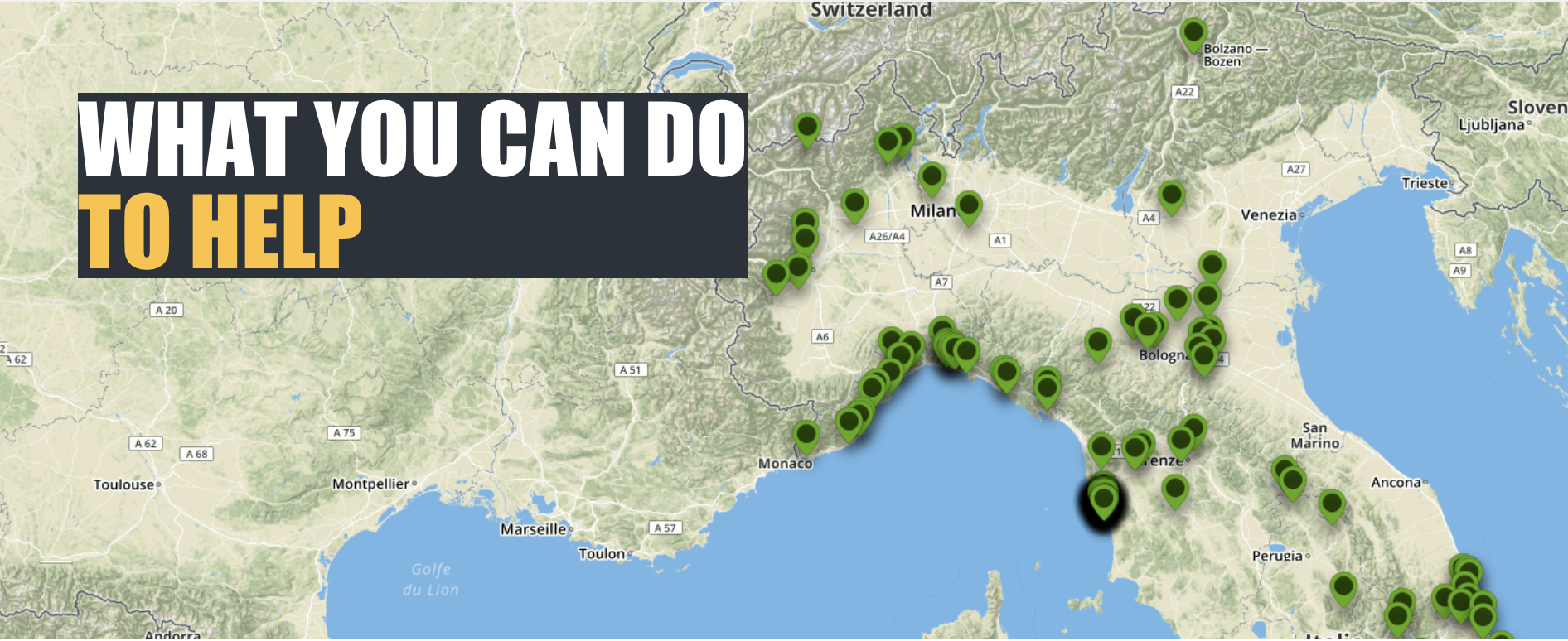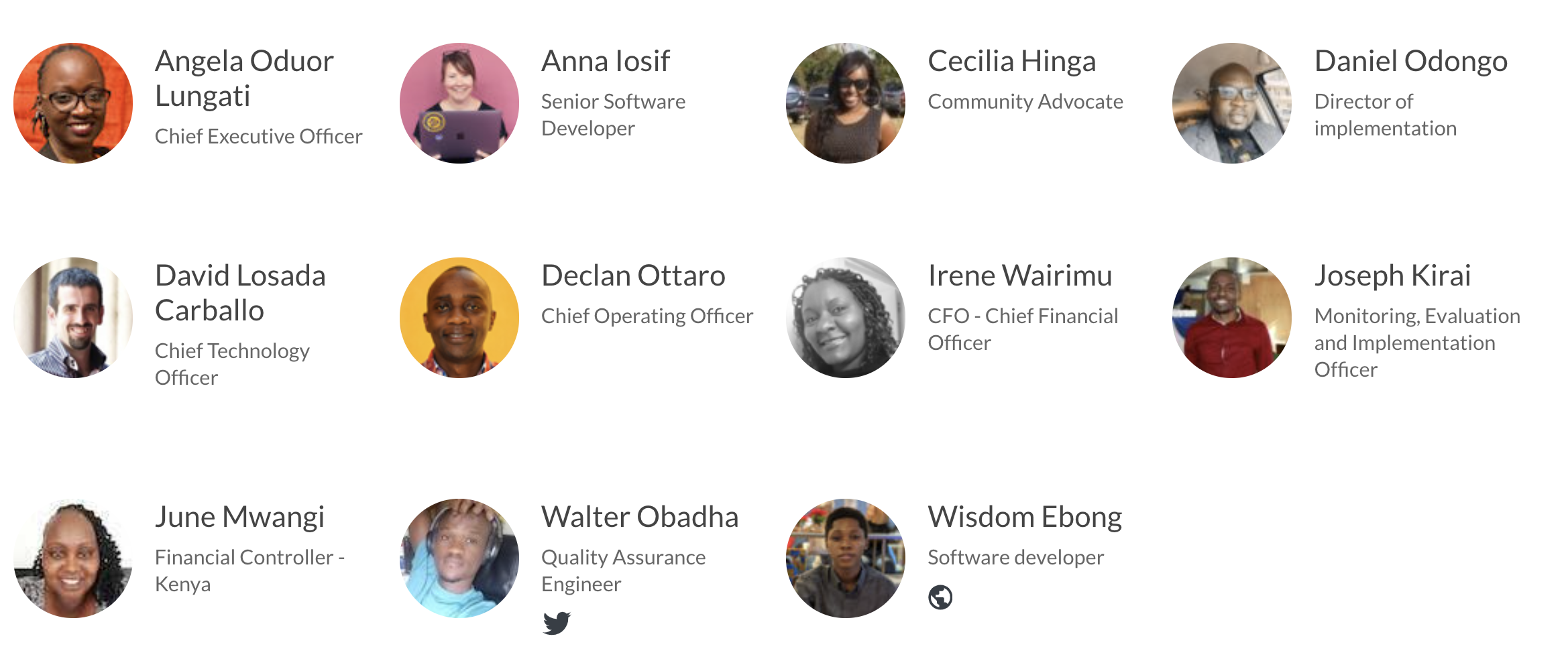I took on the Executive Director position at Ushahidi in mid-late 2019.
It’s safe to say that we were at a crossroads at that time and questioning where we wanted to go.
Our origins are rooted in open source, and when we started, we were heavily reliant on grant funding while generating some revenue from value-added services. Halfway through our journey (as is the case with many non-profit organisations), we had to think about how to keep the lights on. We pivoted towards a software as a service model in late 2015, which saw us launch a new version of our platform but introduce a pricing structure to our hosted service.
Unfortunately, that came with its challenges for an organisation that serves a majority of people who cannot afford to pay for technology tools to fight for social justice. It didn’t work out as well as we would have liked, and it also felt like it was a tug of war between serving our community of users vs our monetary requirements. This directly affected our product roadmap, and we were unable to prioritise items we felt our community urgently needed. I had worked at Ushahidi for a decade, bearing witness to the massive impact on groups responding to crises, monitoring elections, documenting human rights abuses, caring for the health of those in their communities, protecting against gender violence, reducing violence, and speaking truth to power. And, I knew that despite our challenges, we had more to give the world. I was convinced then and even more now that Ushahidi plays a critical role in empowering ordinary citizens and their communities to thrive.

My goal was to now shift our strategy towards:-
- Putting our tools in the hands of those who need it the most, regardless of their financial ability. We had identified that our hosted service pricing of $499/mo was a significant barrier to access. We also had many users running the outdated Ushahidi v2.x without a bridge to upgrade to the most recent and stable version. We needed to fix that.
- Strengthening our relationship with our open source community. The Digital Impact Alliance’s funding support between 2018-2019 had helped us revamp our open source documentation and re-ignited external contributions to our products through participation in Outreachy and Google Summer of Code programs. Still, we wanted to scale this up further.
- And rethinking how we sustain the organisation. We started to ask ourselves whether it was our software that we should be providing as a service, or whether our support and expertise would provide the most value to Ushahidi users, and how that could help us sustain our mission-driven work.
With this in mind, we got down to work with generous support from Stefan Thomas, the Bylo Chacon Foundation and a dedicated, small, driven team, spread out across six different countries; Kenya, Sweden, Hungary, USA, (UK and Uruguay at some point ), now Uganda and Nigeria. The v2.x migration tool was one of the first things we started work on.
Then, COVID-19 lockdowns hit in March 2020 and turned the world upside down. We were flooded with requests from nearly every country in the world, all at the same time. All hands on deck took on a new meaning for us. At some point, everyone on the team(including our fantastic finance team) was directly supporting a user. We recognised the part we had to play in supporting groups that needed to surface critical information. Therefore, we immediately waived the pricing off of our hosted service, which we resolved to do for an indefinite period. With that single action, we saw a surge in the creation of Ushahidi instances that served as a strong validation of the power of collective intelligence and the need for platforms that empower ordinary people to take charge in solving problems in their communities. Since then, there have been over 1900 instances deployed across 139 countries to create visibility into where to access critical resources and services, fill informational gaps for official response, and hold governments accountable for any shortcomings in responding to the pandemic, with support from FCDO UK’s COVID Action Data team.

Thinking about our 13-year journey in supporting the fight for social justice and COVID-19 work, the following three lessons (which I spoke about briefly in a recent blog post) became apparent:-
- Technology is useless if it’s not accessible or if people don’t know how to use it: This insight has informed our decision to waive fees on our hosted service and double down on the strategic support and training we provide to our users.
- Technology needs to adapt to the emerging needs of our users: With increased use came helpful feedback that saw us launch several product improvements. These include entity translations that enable multilingual communities to better interact with data. With support from the CISCO foundation, we also introduced USSD as a new, low-cost data source to make it easier to receive structured data on the Ushahidi platform.
- Technology is an enabler in the quest for social change: It is abundantly clear that technology alone cannot push the needle on social change. We also recognise that many of our deployers are not entirely set up for success, even with free access to our tools and support on making the technology work. They are still missing critical resources to propel and sustain their projects for long term effectiveness, i.e. the teams, financial support and strategic partnerships. With help from the Interledger Foundation’s Grant for the Web team, we’ve started to explore if providing access to funding directly through the platform to deployers will boost their work.
What’s next for us?
MacKenzie Scott and Dan Jewett just announced support to 286 teams empowering voices that the world needs to hear. I’m honoured, proud and incredibly grateful that Ushahidi is among this list of impactful organisations.
Ushahidi’s goal is to empower communities to thrive as a result of access to data and technology.
We know that we have more work to do on:-
- Making improvements to our platform to serve the needs of our user better. For example, we want to add new data sources, improve accessibility for persons with disabilities, expand our language reach, and improve digital and data security on our tools.
- Helping our users create meaningful impact by expanding the scope of our support from just providing the tools and training to giving small grants to deployers who need it.
- Sustaining Ushahidi’s work for many more years to come. The toughest nut we have to crack is developing a business model that will augment, not distract from our core mission and work and enable us to continue making our platform accessible to those who need it.
Mackenzie and Dan’s generous unrestricted support will help us invest in making that happen and so much more.
Thank you!
As I reflect on these last two years, there’s a couple of groups that I must recognise because, without their support, we would not be here;
- Stefan, whose initial support kickstarted this strategic shift and who continues to open more doors for us selflessly;
- Jessica and Veronica, whose multi-year support and trust in our leadership gives us the freedom to think outside the box;
- CISCO Foundation and the FCDO UK’s COVIDAction team that enabled us to provide support to the world in the middle of a devastating pandemic;
- The Digital Impact Alliance who catapulted our open source work,
- and the Grant for the web team, enabling us to provide access to funding for grassroots organisations using our platform.
Thank you for being the giants on whose shoulders we have stood.
To the Ushahidi board and my valiant army, the Ushahidi team - I could not have asked for a better team. It is a privilege to be on this ship with you.

Onwards!